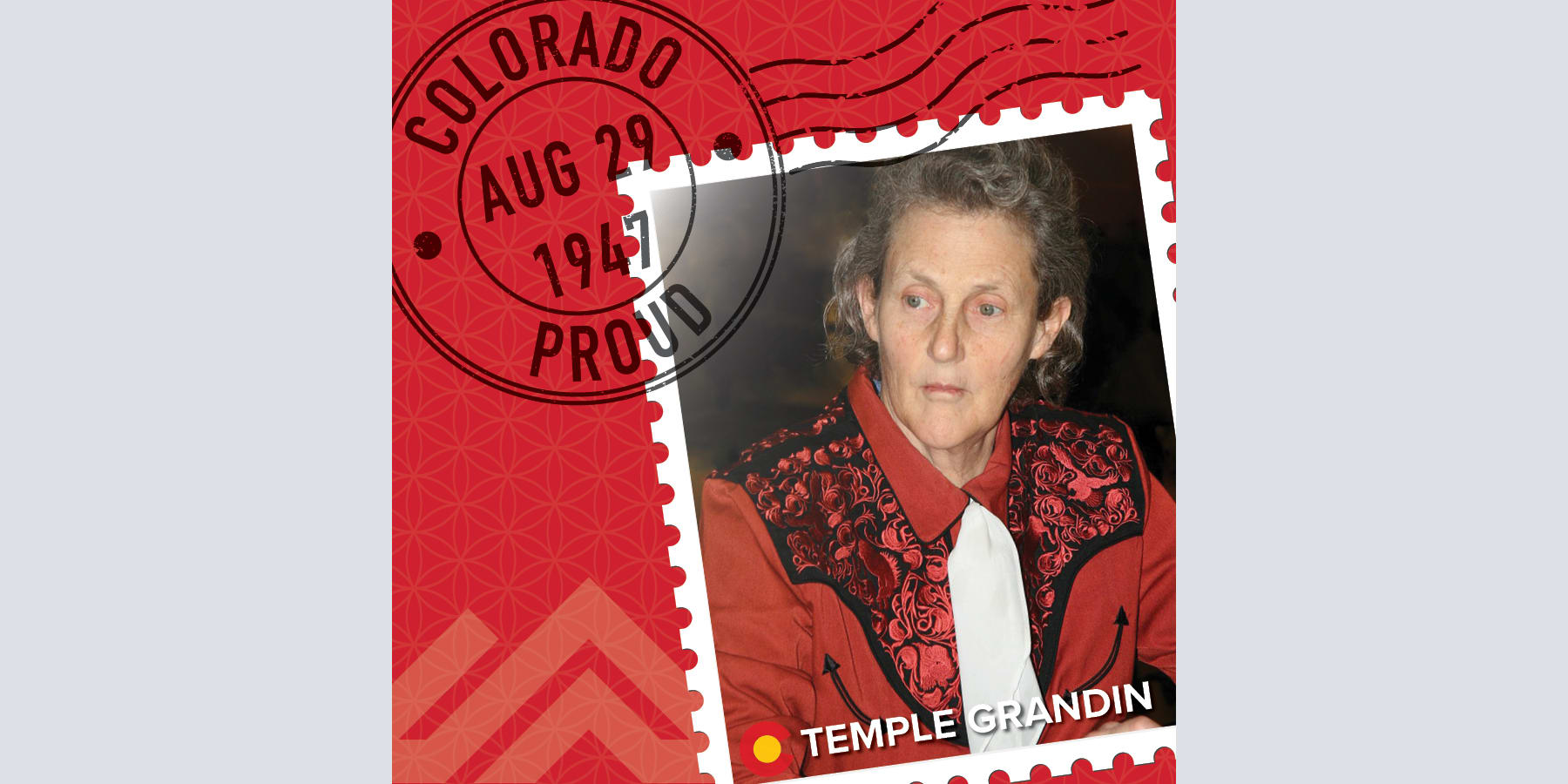
Colorado Proud: Honoring Dr. Temple Grandin, scientist, animal behaviorist, neurodiversity activist
Out in a feed yard in Arizona in the 1970s, the issue was evident to everyone working that day, in particular to a quiet, observant young woman: Some of the cows walked up the chutes to receive their vaccinations. Others refused. Those around her puzzled over the conundrum, wondering whether brute force might fix the problem.
The woman, Temple Grandin, got down in a chute to see what the cattle were seeing. She noticed shadows, a reflection off the bumper of a truck, a shiny piece of metal that flashed in the sun. It struck her that the animals were afraid of these things – and that, if these visual distractions were removed, the cattle would walk calmly up the chute. Physiology books she read in college taught Grandin that cattle had 360-degree vision.
To understand animals, she understood, one must think about how they see. Grandin became one of the first scientists to report that animals are sensitive to environmental details that most people do not notice. The lessons she learned decades ago in the Southwest formed the basis of Grandin’s first two scientific articles, on beef cattle behavior during handling, and informed her humane redesigns of facilities used worldwide for handling and slaughtering cattle.
Viewing the world as an animal would made sense to Grandin because she is autistic – and, by virtue of having this neurodevelopmental disorder, she, too, sees the world as a place where thoughts arrive in pictures rather than words. Grandin is an American scientist, an animal behaviorist, a livestock industry consultant and a world-renowned autism and neurodiversity activist. For the past three-plus decades, she has been an animal science teacher and researcher at Colorado State University in Fort Collins. In 2010, Time magazine named Grandin to its annual list of the 100 most influential people in the world, in the “Heroes” category. She has been inducted into the Colorado Women’s Hall of Fame and the National Women’s Hall of Fame. Her list of honors and awards is far too long to chronicle here; learn more by visiting her webpages chronicling her livestock behavior and autism research. In honor of Women’s History Month, RTD is proud to recognize the life-changing work of Dr. Temple Grandin.
Grandin – who was not formally diagnosed with autism until she was an adult – is one of the first people with autism to document the insights she gained from her personal experience. Her writings detail her struggles, her fear and anxiety, and her experiences with sensations of smell and sound. As Grandin explains it – including in this 2010 TED talk – her brain works like Google for images, in which a keyword search pulls up specific pictures that flash in her head, one at a time, and can be played as a full-length movie. She believed everyone thought in pictures as she did; it was only when Grandin researched and wrote a book on this topic that she learned that was not the case.
In her lectures about autism, Grandin speaks to it encompassing a wide continuum of traits, from someone who is entirely nonverbal to highly achieving scientists and engineers. Theoretical physicist Albert Einstein, composer Wolfgang Amadeus Mozart and inventor Nikola Tesla would all probably be diagnosed as being on the spectrum today, she says. The autistic mind is a specialist mind that attends to details.
Visual thinking was a tremendous asset in Grandin’s work designing livestock facilities, she says. And yet, this way of thinking of just one of three specialized types she recognizes and has written widely about, the others being pattern thinkers (drawn to music, math and programming) and verbal minds (that retain all kinds of facts). Grandin believes that schools need to provide students with more hands-on classes – like art, auto shop and drafting – to help develop their interests. This is important, she says, because these classes teach career skills and enable students to have social interactions with their peers.
“The world is going to need all of the different kinds of minds to work together,” Grandin told the TED audience. One of her calls to action: Be a better observer.